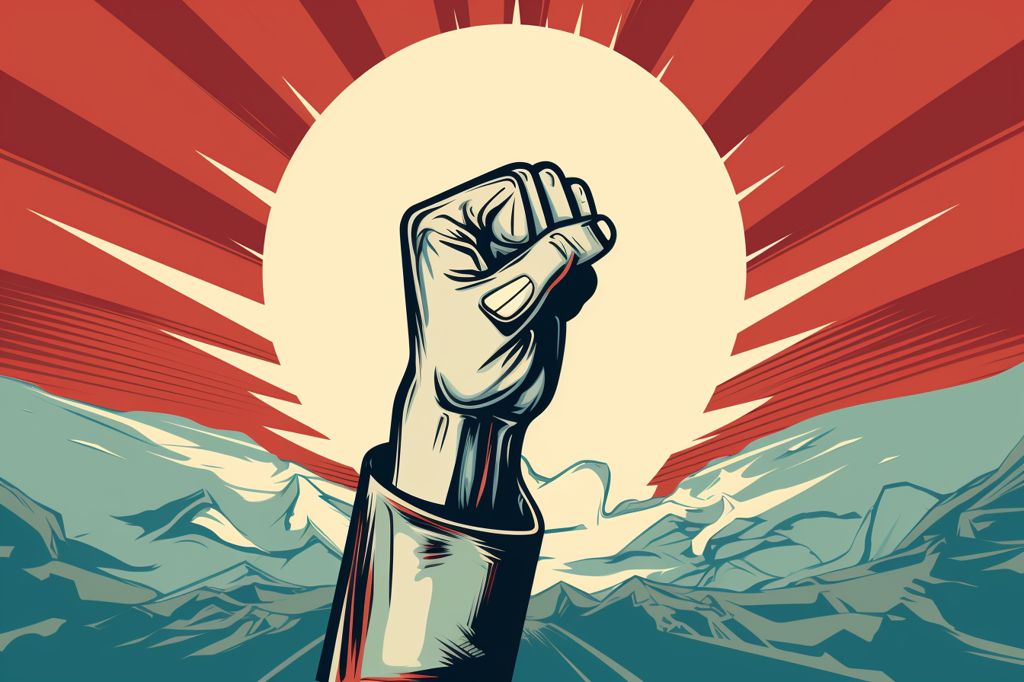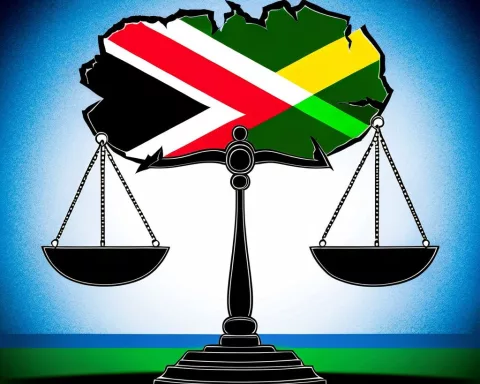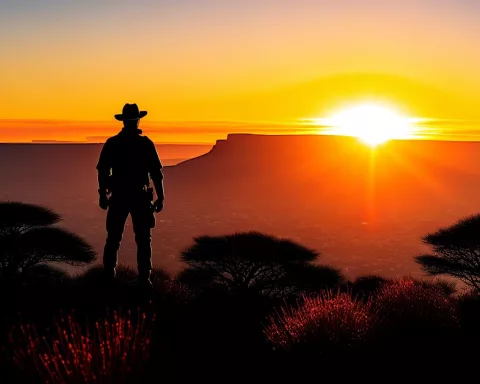Increasing Tensions Between Political Parties in South Africa
In a mass political rally, the Economic Freedom Fighters (EFF), South Africa’s third-largest party, accused its closest rival, the Democratic Alliance (DA), of inciting ethnic violence. The EFF, led by Julius Malema, stirred up emotions by chanting a controversial anti-apartheid struggle song, “Kill the Boer, the farmer.” This song targets the Boers, who are the descendants of Dutch settlers and have a significant presence in South Africa.
The DA’s leader, John Steenhuisen, labeled Malema as a “bloodthirsty tyrant” determined to ignite a civil war. The party announced plans to file a complaint against Malema with the UN Human Rights Council and consider further legal action.
The 2024 Elections and the Weakened Grip of the ANC
South Africa is gearing up for national elections in 2024, with polls indicating that the ruling African National Congress (ANC) could witness its vote drop below 50%. The ANC is facing discontent over corruption, power cuts, and entrenched unemployment, which have weakened its grip since the end of white rule in 1994.
The Possibility of Forming a Coalition and Political Rivalries
In recent weeks, Malema stated that the EFF was open to forming a coalition with the DA and its six smaller partner parties. However, Steenhuisen rejected the idea, citing the EFF’s lack of alignment with the coalition’s “values and principles.” With the DA now labeling the EFF as “political enemy number one,” any chance of a rapprochement seems to have vanished.
The militant EFF champions reforms to increase land ownership among Black South Africans and is polling at around 13%, while the liberal DA, which has traditionally attracted primarily white voters, is projected to win about 16% of the vote.
The EFF’s 10th-anniversary Celebrations and Malema’s Popularity
The EFF’s 10th-anniversary celebration saw Malema showcase the party’s strength by packing a Johannesburg stadium with 90,000 supporters dressed in the party’s signature red. The charismatic leader, donning his traditional red beret, reveled in the adoration of his jubilant fans as he was raised on an elevated platform amid a flurry of red and gold confetti.
As the 2024 elections approach, South African politics continue to evolve, with parties like the EFF and DA vying for opportunities to challenge the long-standing rule of the ANC. The country’s future will ultimately be decided by the voters, as they determine the direction of their nation in a post-apartheid, democratic South Africa.












